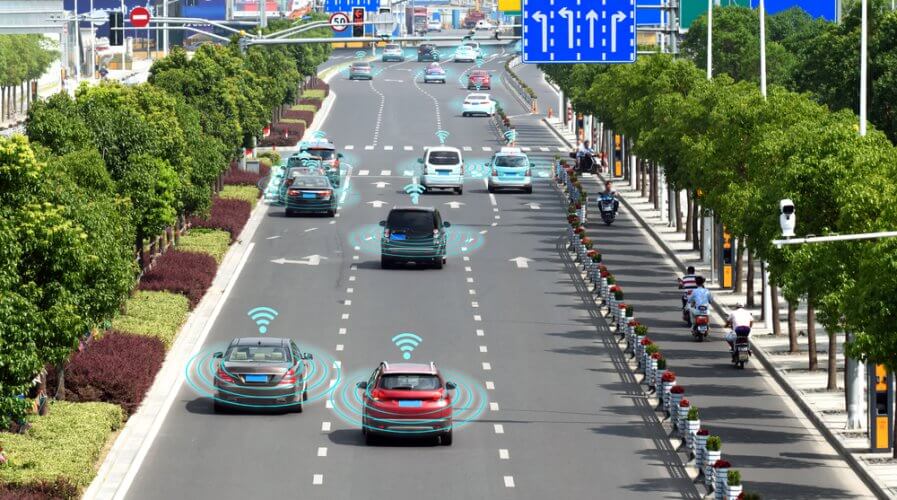
Singapore leads APAC autonomous vehicles adoption. Source: Shutterstock
Singapore leads APAC autonomous vehicles adoption
GLOBAL autonomous vehicles (AV) market is expected to expand to US$173 billion within the next five years.
The market is expected to radically impact Asia by becoming part of a sustainable solution to its rapid urban development.
In fact, Asia is possibly the most dynamic and exciting of all regions that are promoting self-driving technology implementation.
The region hosts some of the most populous cities in the world. On top of that, many Asian countries are also important stakeholders as auto-makers.
Said otherwise, this puts Asia in the spotlight for autonomous vehicles (AV) development.
A KPMG report ranked Singapore second in the world and first in Asia for its readiness to adopt AVs.
The Netherlands topped the AV Readiness Index for the second year in a row.
The four criteria that the index scores countries on are policy and legislation, technology and innovation, infrastructure, and consumer acceptance.
Singapore ranked first for the strength of its government and consumer acceptance while taking second place for infrastructure.
Singapore leads APAC’s AV adoption
In Singapore, the AV market is heavily supported by regulators. Its intense proactiveness in preparing for a mobile future helps with the country’s AV readiness significantly.
“We expect that the AVs will greatly enhance the accessibility and connectivity of our public transport system, particularly for the old, families with the young, and the less mobile,” said Transport Minister, Khaw Boon Wan.
The country is already working on a handful of AV projects.
Its 2017 amendment to its Road Traffic Act has helped the state soar to its high level of readiness for AVs. The revision allows self-driving vehicles to be tested on public roads since.
In the same year, Singapore began the Centre of Excellence for Testing & Research of Autonomous Vehicles at Nanyang Technological University (CETRAN).
The test facility is a complex complete with accurate specifications of intersections, traffic lights, bus stops, and pedestrian crossings.
Both local and foreign companies have conducted trials for AVs at the circuit.
The government has also announced its aim in rolling out autonomous buses by 2022. Next year, Singapore will be introducing self-driving minibusses in selected areas beyond the test circuit.
What about the rest of APAC?
The question is no longer whether but when all road vehicles will become fully autonomous.
A study shows that fully autonomous vehicles (level 5) are expected to account for a quarter of the world’s road traffic by 2030.
Asia Pacific countries in the AV Readiness Index besides Singapore are Japan, New Zealand, South Korea, Australia, China, and India.
Japan ranks at #10 with its strong technology and innovation, with the highest amount of AV-related patents and runner-up for both 4G coverage and road logistics infrastructure.
New Zealand (ranked #11) is known to develop new autonomous technologies. Its lack of scale and domestic manufacturing counteracts with its initiatives.
Welcoming new entry of domestic auto enterprise would stimulate the country’s self-driving technology market.
End of last year, South Korea (ranked #13) opened an experimental city equipped with 5G technology. K-City aims to test and commercialize level 3 AVs, which are autonomous but will still require human supervision.
Despite top scores for regulatory support, Australia (ranked #15) did not make it to the Index’s top ten.
Some states have already passed laws on AVs to ensure road safety. Next, the Australian government announced that national law for AVs will be enforced by 2020.
China ranks at #20 in spite of having the world’s largest auto market by production and sales.
The Chinese government allows first approved AV tests on public roads in 2018. This attracted a swarm of local companies that are working hard to compete on the world stage.
India (ranked #24) leads poll on enthusiasm for AVs. The country’s strength lies in its innovation and technology.
Though, its population density will require a massive investment in new and dedicated physical infrastructure for an AV ecosystem. The process will involve the input of the country’s many commercial automakers.
AVs are an essential element of the digitization age with room for more automotive industry expansion. The reality of autonomous vehicles is nearer than what appears in our rearview mirror.
The self-driving revolution would bring true mobility that would skyrocket economic productivity across the world.
READ MORE
- Ethical AI: The renewed importance of safeguarding data and customer privacy in Generative AI applications
- How Japan balances AI-driven opportunities with cybersecurity needs
- Deploying SASE: Benchmarking your approach
- Insurance everywhere all at once: the digital transformation of the APAC insurance industry
- Google parent Alphabet eyes HubSpot: A potential acquisition shaping the future of CRM






